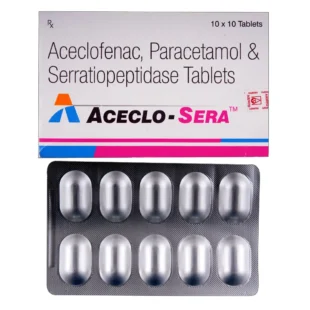- Your cart is empty
- Continue Shopping
Pantocid IV Injection is a medicine that reduces the amount of acid produced in the stomach. It is used to treat acid-related disorders of the stomach and intestines such as acid reflux, peptic ulcer disease, and Zollinger-Ellison syndrome. It also helps prevent stress ulcers in critically ill patients and is given before anesthesia to reduce aspiration-related complications. This medicine belongs to a class called proton pump inhibitors (PPIs) and is administered intravenously by a healthcare professional. The dose and duration of treatment depend on your condition and response to therapy. Even if symptoms improve quickly, it is important to complete the prescribed course. Avoiding caffeinated, spicy, or fatty foods and eating smaller, more frequent meals can improve treatment outcomes.
Uses of Pantocid Injection
Treatment of acidity
Management of gastroesophageal reflux disease (acid reflux)
Peptic ulcer disease
Zollinger-Ellison syndrome
Prevention of stress ulcers in critically ill patients
Benefits of Pantocid Injection
Reduces stomach acid production
Relieves heartburn, abdominal pain, and diarrhea
Promotes healing of peptic ulcers
Prevents complications such as gastrointestinal bleeding
Supports digestive comfort and overall gastrointestinal health
Common Side Effects
Thrombophlebitis (pain, redness, swelling at injection site)
Dizziness
Nausea
Abdominal pain
Flatulence
Headache
Vomiting
Diarrhea
Joint pain
Injection site reaction
How to Use Pantocid Injection
Administered by a healthcare professional
Do not self-administer
Follow the dose and schedule prescribed by your doctor
How Pantocid Injection Works
Pantocid IV Injection is a proton pump inhibitor (PPI)
It works by reducing the amount of acid produced in the stomach
This helps relieve acid-related indigestion, heartburn, and promotes ulcer healing
Safety Advice
Avoid alcohol while using this medicine
Consult your doctor if pregnant or planning pregnancy
Safe if prescribed during breastfeeding
Use with caution in kidney or severe liver disease
Report persistent or severe side effects
Precautions
Do not self-administer
Complete the full course of treatment
Monitor for allergic reactions
Inform your doctor about other medications
Avoid driving if dizzy or sleepy
Follow dietary recommendations to reduce symptoms














Reviews
There are no reviews yet.